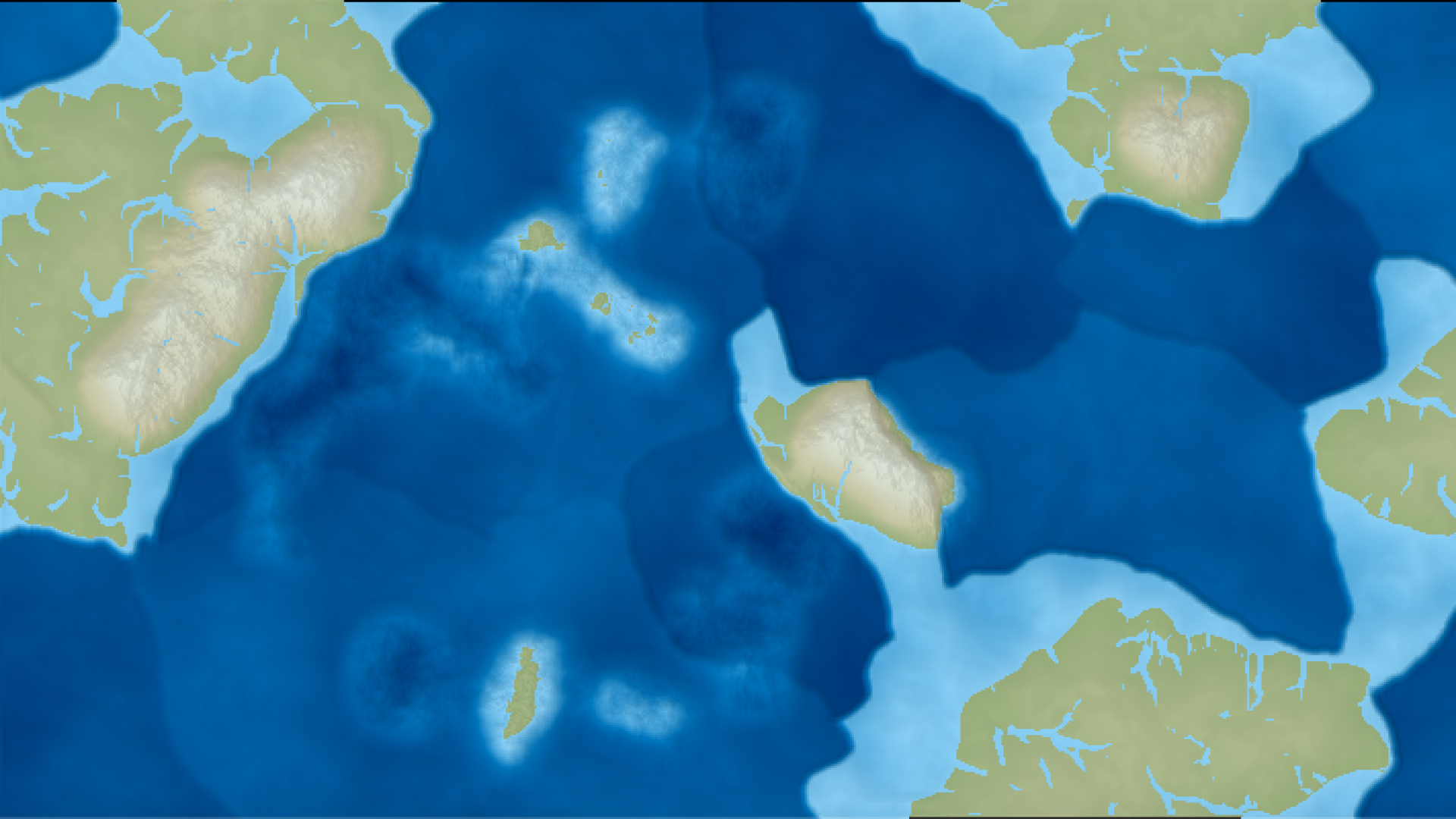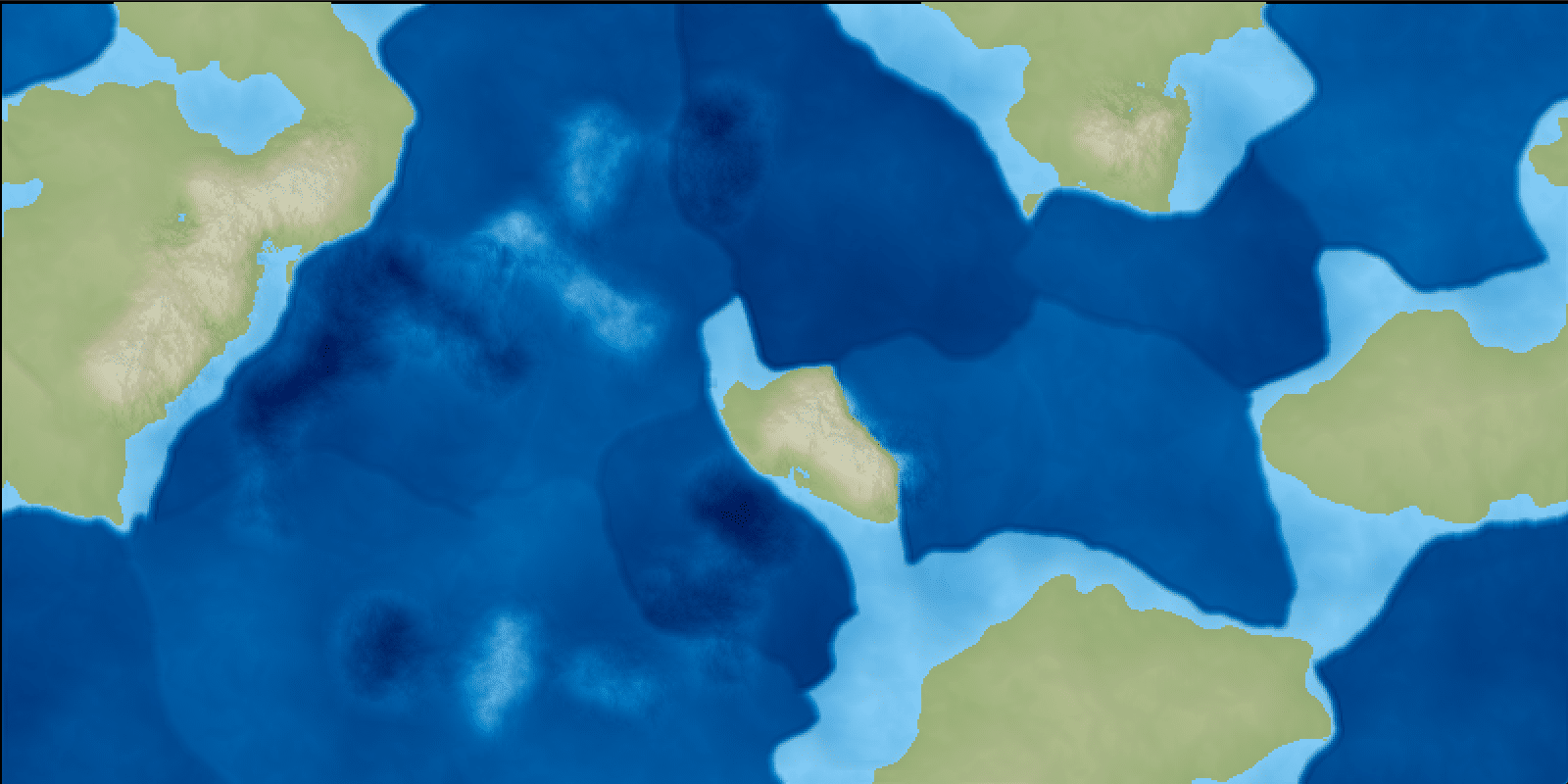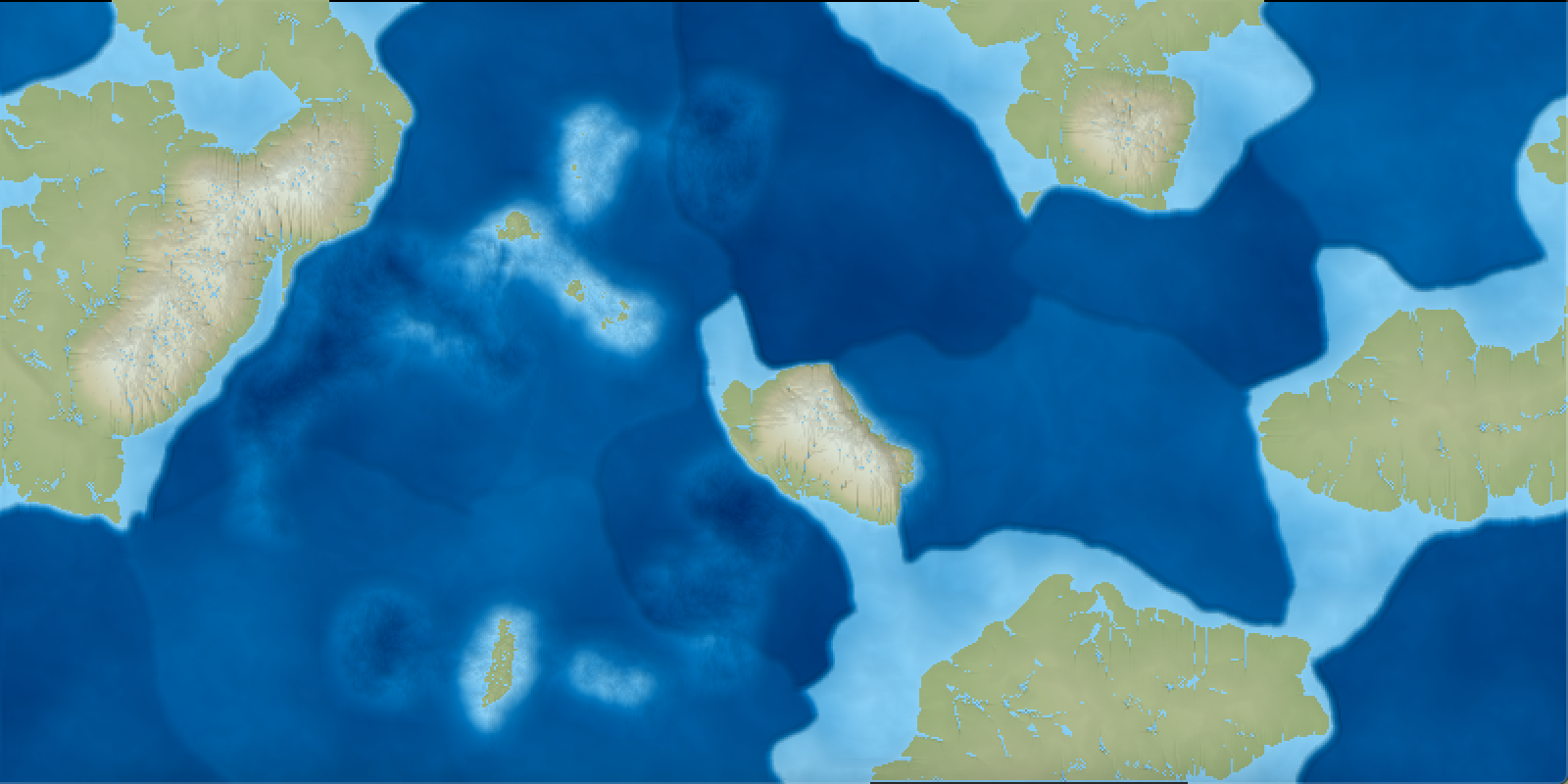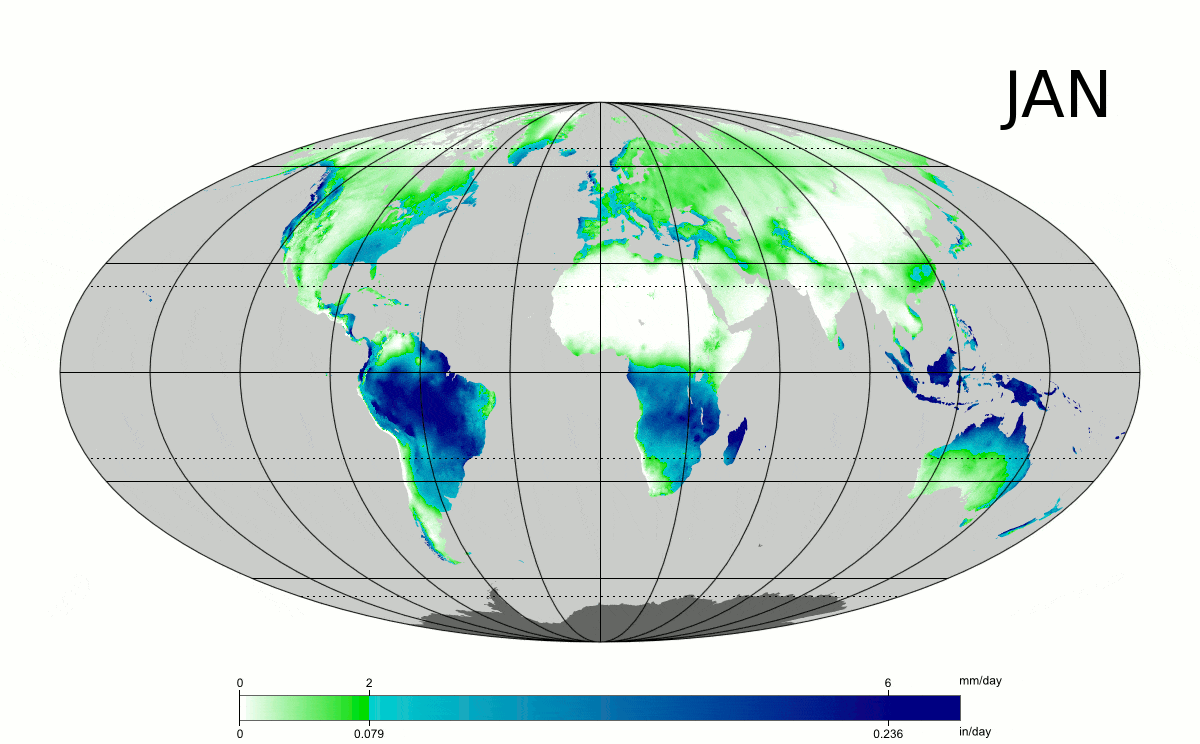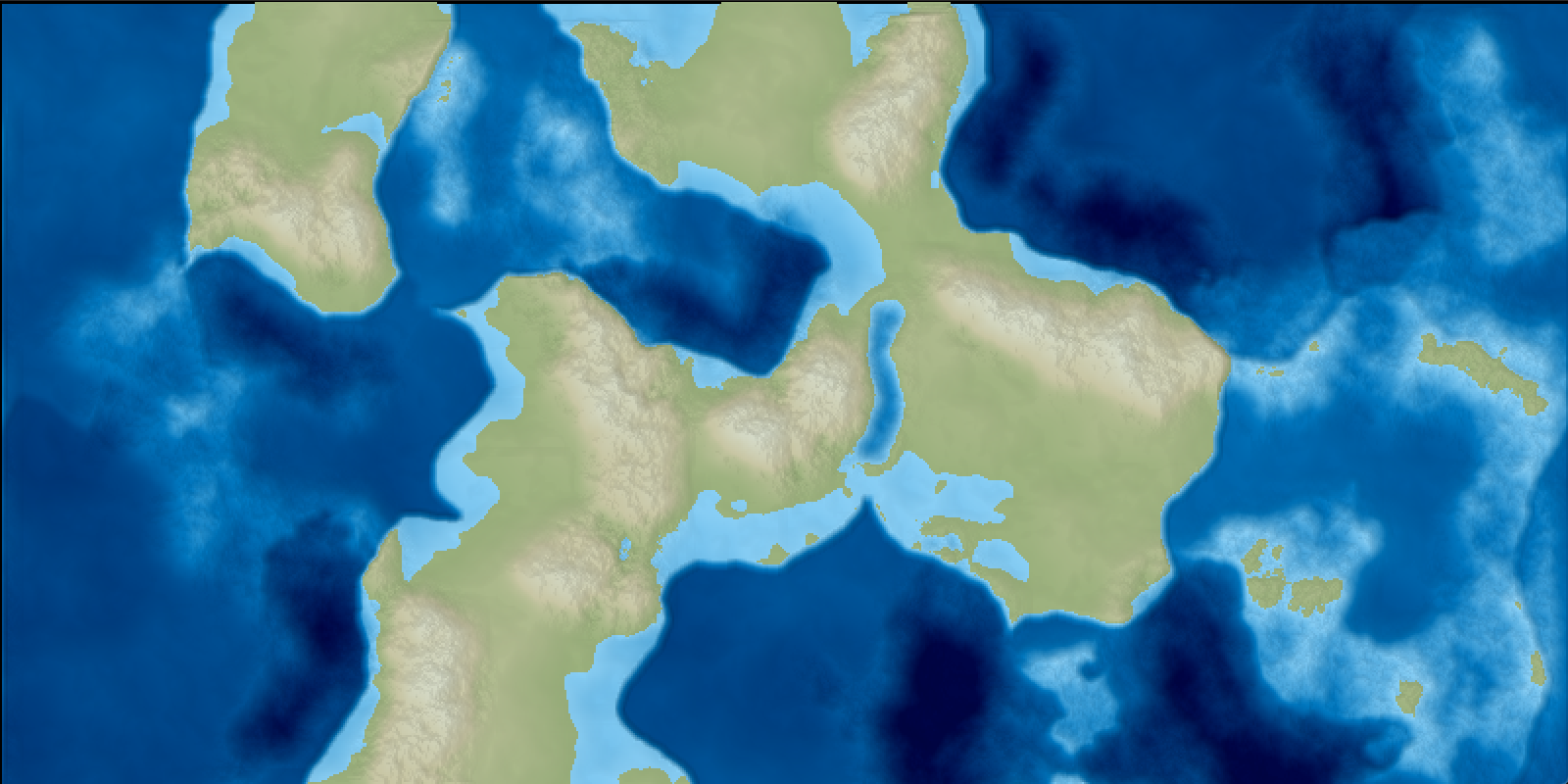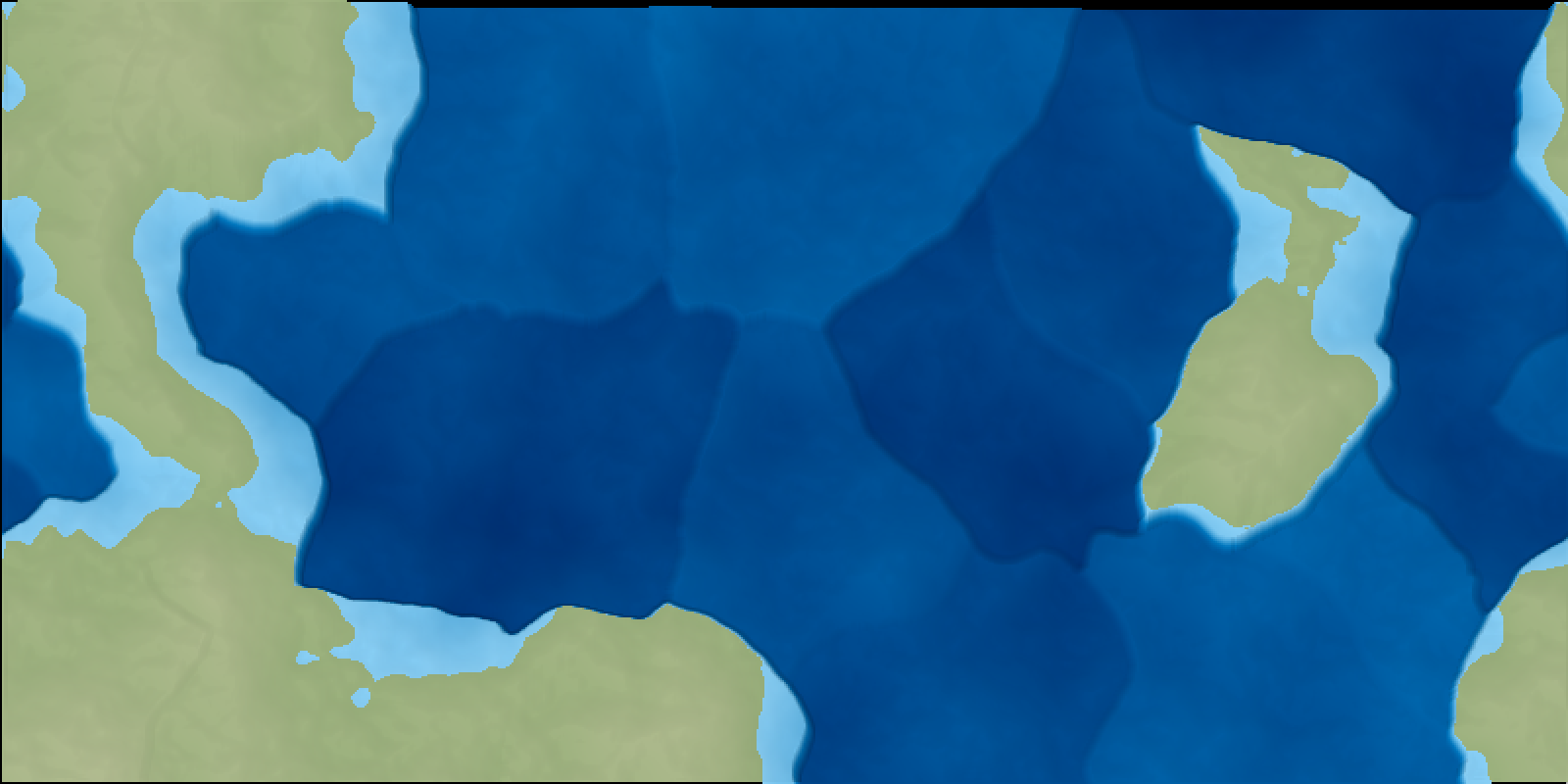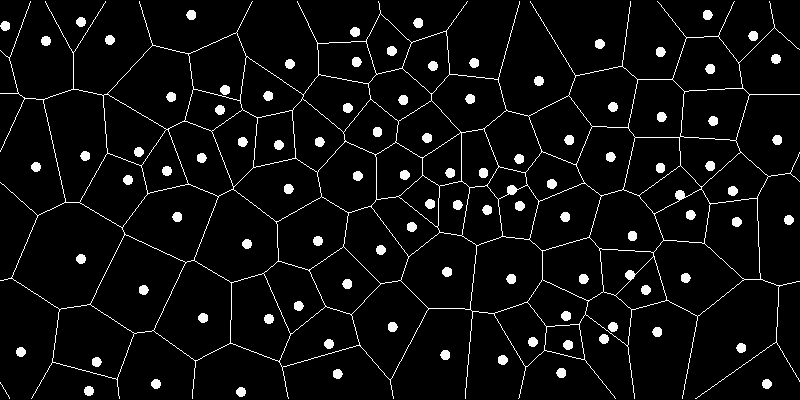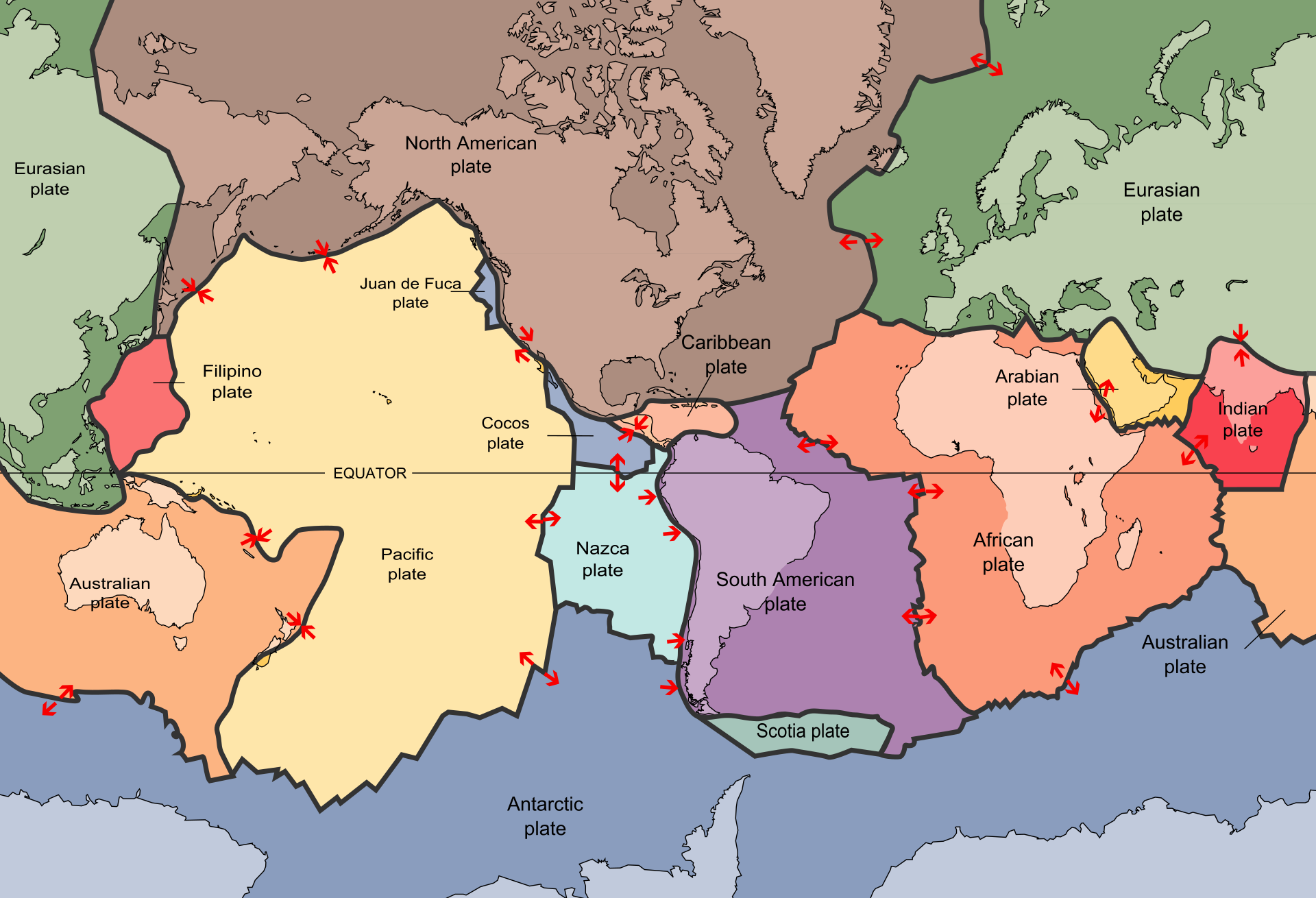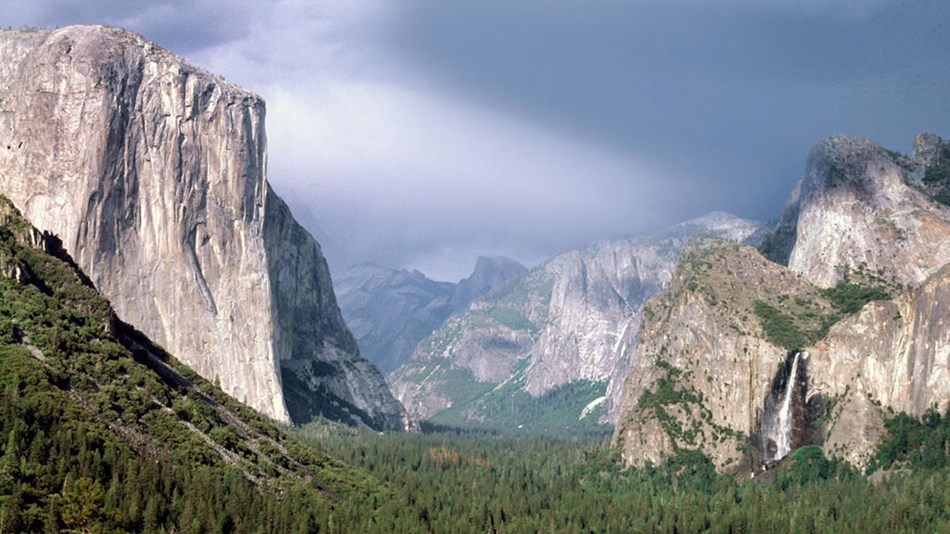Climate 3: Insolation and Black-Body Radiation
Posted onThe only way for energy to enter or leave my climate simulation is through radiation. As is discussed more formally below, energy enters via solar radiation, and energy leaves via black-body radiation. I’m starting with this because these two phenomena drive the entire climate system. Without them, winds and weather can’t exist. With only radiation, […]

